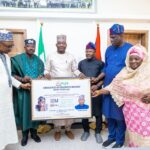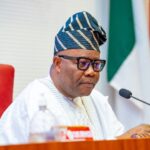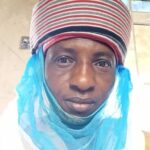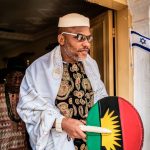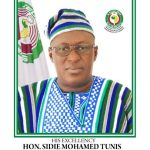By Linus Aleke
Once again, the Community Parliament, of the Economic Community of West African States, otherwise known as ECOWAS Parliament, has converged on the ancient city of Winneba, the land of Deer hunters, in present day Ghana, to perform another ritual of talks without actions, which of course had left the sub continent laying prostrate, in all indices of human development.
Themed, “The Challenges of Tenure Elongation and Unconstitutional
Regime Change in West Africa – The Critical Role of the ECOWAS Parliament,” the sub continental legislators are expected to focus attention on resurgence of coup d’etat in West Africa, even though, the rebellion against democracy is thus far restricted to Franchophone West Africa.
But noble as this annual talk shop, christened Extra Ordinary Session of ECOWAS Parliament, may seem, the troubling question is, what good can come out of talk shop? But despite the fact that the birth of Jesus of Nazareth, invalidated an age long rhetoric question, can anything good come out of Nazareth? The West African region has progressively built a horrifying reputation, prompting people to ask similar question in contemporary time – can anything good come out of West Africa? Your guess is as good as mine.
It is however, on the premise of this continuous slide into the abyss of pain and suffering in the subregion, that the Leader of Ghanaian Delegation to the ECOWAS Parliament, Hon. Alexander Kwamena Afenyo-Markin, temporarily stepped down from his high horse, while providing answers to the caption of this piece, by affirming that the theme of the extra ordinary session, is not just a call for reflection, but a clarion call for action. A rhetoric departure from the ritualistic past.
Nevertheless, before returning back to the romantic speech of Hon. Afenyo-Markin the official opening of the High-Level Interactive Seminar and the Extraordinary Session of the Economic Community of West African States (ECOWAS) Parliament, in Ghana,
a peep into available statistics on the socio economic conditions of citizens of the sub region in select sector of the economy will not be a bad idea.
Lamenting and pointing out seven facts that show why sub regional leaders must end extreme poverty in West Africa, Okunola, (2022), posited that “Extreme poverty in West Africa rose to nearly 3% in 2021”.
Relying on report released by an international advocacy organisation Oxfam, in April 2022, Okunola, (2022), further averred that “At least 25 million people in West Africa can’t afford to meet their basic food needs in 2022 — up 34% since 2020”.
Flood, drought, conflict, and the economic effects of COVID-19 in West Africa, he said, are some of the factors contributing to the food and hunger crisis the region is currently experiencing.
Okunola, (2022), also disclosed that, “11 of West Africa’s 16 countries are currently in debt distress”. Quoting a May 2022 report by the Nigerian Economic Summit Group (NESG) and the Open Society Initiative for West Africa (OSIWA), he said, “11 countries in the region are currently under debt distress and could soon start to default on mounting external debt. We also find that a financial catastrophe cause by a debt crisis in one country may spread throughout the region. The financial woes in Nigeria, in particular, portends a serious threat to other nations in the region”.
He concluded that, “The West Africa region is one of the most unkind places to women in the world: harmful cultural practices, the highest maternal mortality rates in the world, economic inequality, misogynistic laws, and political exclusion are just a few of the issues West African women currently live with. Women and girls are also extremely vulnerable to the insecurity and conflict in the region, which has steadily risen over the past few years. More young women and girls are being abducted or forced from their homes by violence, while their schools and places of business are being attacked by violent armed groups in various parts of the region”.
Reminiscing on the rising insecurity and resurgence of coup d’etat in West Africa, Siaplay and Werker (2023), posited that, “As West Africa enters 2023, the region faces a new period of instability following recent coups d’état in Burkina Faso, Guinea, and Mali. These coups are occurring amid continuous conflict in the Sahel region, where violence displaced more than 2.5 million people and was projected to kill some 8,000 individuals in 2022. Hostilities have moved outside the Sahel and closer to previously peaceful areas. For instance, Benin and Togo witnessed deadly attacks in 2021 and 2022, terrifying citizens and contributing to growing evidence of broadening violent activities in the region’s coastal states”.
Painting the worst graphic picture of the negatives in the sub region considered as the worst in the world, the European Union and the Sahel and West Africa Club, as well as the eleven international organizations in response to new analyses of the March 2022 Cadre Harmonisé (CH), in April 2022, ahead of the virtual conference on the food and nutrition crisis in the Sahel and Lake Chad, said: “West Africa is hit by its worst food crisis in a decade, with 27 million people going hungry. This number could rise to 38 million this June – a new historic level and already a quarter surge over last year- unless urgent action is taken”.
Hon. Afenyo-Markin, who is also the Deputy Majority Leader of Ghana’s Parliament, assured of Parliament’s departure from empty talk to action.
He said: “We find ourselves at a pivotal moment in history where the pillars of democracy are being challenged and shaken, but we must stand resolute. We cannot overlook the ripple effects of the global crises that have besieged us. The COVID-19 pandemic, followed closely by the tragic events unraveling in Ukraine and Russia, have brought untold hardships, thrusting millions into the depths of poverty, squalor, and
immense suffering. Citizens across West Africa, and indeed Africa, have not been spared from this global ordeal, bearing the brunt with profound grace and
resilience”.
Quoting the World Food Program, current data, Hon. Afenyo-Markin said, the number of hungry people in Central and
West Africa could rise to 48 million this year alone.
While, ECOWAS MP’s view aligns with the views expressed in preceding paragraphs, he added that it is with a heavy heart that the parliament acknowledge another glaring crisis that tears at the fabric of communities – the barbaric onslaught from jihadists and terrorists. With their crude weapons of horror.
He observed that the terrorists have continue to bring death and despair to many parts of West Africa. According to him, “We must staunchly assert that these activities should in no way provide a justification for military coups to overthrow democratically elected regimes. We must insist,fervently, that the answer to these acts of terror lies within our democratic institutions, standing as bastions of hope and fortitude amidst the turmoil. We stand at a juncture where the road we choose will
dictate the future of our great region. The recent resurgence of military coups threatens to drag us back to an era we have fought tirelessly to transcend. We must firmly condemn the coups in Mali, Burkina Faso, Guinea, Chad, and Gabon, along with the hostilities in Sudan”.
These actions, Hon. Afenyo-Markin said, are a betrayal of the democratic principles the Parliament hold dear, and they demand a swift return to constitutional rule.
“We must affirm, unequivocally, that
regression is not the solution. Our golden age lies ahead of us, not in the shadows of the 1960s to 1980s. It is under the shade of democracy that we can
cultivate the progress we aspire to. It is here that we can construct the schools that will nurture the minds of our future leaders. It is here that we can build modern hospitals to heal our people and foster technology to propel Africa into an era of supreme industrialization in the wake of the AfCFTA.Together, we can construct robust and resilient economies that will position Africa as a formidable competitor on the global stage.
As we gather here today, I cannot help but feel a profound kinship with the great son of Ghana, Kofi Annan, of blessed memory, who once reminded us that
though there is no one model of democracy, it is essential that the principles of democracy, human rights and freedoms are upheld universally. Taking inspiration from his wise words, we find ourselves with a renewed commitment to enhance our democratic systems, making them more responsive to the needs and aspirations of every citizen, regardless of where they find themselves on the broad spectrum of society. Indeed, no form of governance has ever been perfect, yet history has proven time and again that democracy
stands as the best option for nations seeking development in peace and harmony. Even in its imperfections, it carries within its structures the capacity to rise above the ills that afflict it, fostering environments where innovation, justice, and freedom thrive,” he further opined.
At this juncture in his speech, the Ghanaian MP, accused the executive arm of government in the sub region of fueling the coup d’etat in West Africa, through repeated attempt to perpetuate selves in power as Presidents by amending the constitution to circumvent the limit of term of office provided for by the constitution.
He said: “Admittedly, our current global landscape showcases a bevy of leaders who have sought to unlawfully modify
their constitutions to perpetuate their hold on power. This is a grave affront to the principles of democracy, which
enshrine the fundamental rights of citizens to choose their leaders and to live under a government that is held accountable for its actions. As we traverse this difficult period, we must remain vigilant, standing firm against the erosion of these principles and fighting to protect the sanctity of our democratic processes.
“Now, more than ever, we are called upon to be stalwarts of justice, champions of the values that define democratic governance. Our unity must be our shield, protecting the flames of democracy and freedom from being extinguished by the icy winds of despotism and tyranny. We find ourselves at a critical juncture, a time when our decisions and actions will shape the trajectory of our region for generations to come. We cannot afford to falter or to allow the resurgence of military coups and other forms of unconstitutional changes of government. The reason is that those actions undermine the progress we have fought so hard to achieve”.
In his address of welcome, the Speaker of ECOWAS Parliament, Dr Sidie Mohammed Tunis, said, the Parliament must embrace democracy as essential to progress and muster the confidence to speak out against leaders who are solidifying their hold on power against
the wishes of the people because parliamentarians have a moral obligation to do so.
“We must denounce those who start constitutional and institutional coups
with the same zeal and tones as we denounce military coups. We must
publicly denounce corruption, poor leadership, and anti-democratic forces
while resisting those who seek to undermine our democracy. To that effect, the ECOWAS Parliament must take charge and ensure that National Parliaments carry out conflict prevention measures in addition to overseeing
the effective operation of the ECOWAS Early Warning System. We must also be sensitive to the situation of young people in our society, who face poverty, barriers to education, many forms of discrimination as well as limited job prospects and opportunities, leaving them susceptible to engaging in anti-democratic initiatives,” the Speaker said.
The theme of the parliamentary seminar, the speaker disclose, is “The Challenges of Unconstitutional Regime Change and Presidential Term Limits in West Africa – The Role of the ECOWAS Parliament”.
Dr. Tunis noted that the seminar is being held in response to the deterioration of democratic governance in the sub-region, stressing that It is a fact that over the last quarter century, no region in Africa has made more democratic progress than West Africa. Available data, experts said do not support this non empirical propositions of the Speaker.
Dr. Tunis argued that open elections and regular leadership transitions were becoming close to the norm in West Africa, adding that sadly, “we are
seeing this trend reverse, and all the work done to firmly establish democracy in our region is disappearing right before our eyes”.
The speaker noted that he firmly believe that the following trends, which have a detrimental effect on regional peace, development, and security, are impeding the consolidation of democracy, the rule of law, and West Africa’s ongoing constitutional developments.
These threats, he said, include but not limited to, “the re-emergence of military coups and the overthrow of democratic
governments as recorded in Mali, Guinea, Burkina Faso and most recently
Niger. The trajectory of efforts towards constitutional amendment in relation to
Presidential term limits and tenure elongation. The growing interference of the military in the political governance of the state, in contrast to the clear legal and constitutional framework defining the fundamental relationship between the state and the armed forces; and the non-compliance of key protocols by Member States, as well as the
low rate of compliance with key obligations and judgement of the
ECOWAS Court of Justice. Not only have the above circumstances undermined popular faith in democracy across all ECOWAS Member States, but they are also undermining trust in the organization’s leadership and increasing the likelihood of further erosions of democratic governance”.
Considering the foregoing, the ECOWAS Parliament, Dr. Tunis said, organized this high-level Seminar as part of the performance of its obligations under the Treaty, to determine what causes military takeovers, democratic regression, and
political instability in the sub-region.
Declaring the talk shop open, the former Chair of ECOWAS Authority of Heads of State and Government, and President of Ghana, Nana Akufo-Addo, called on the people and governments in ECOWAS to put in more effort in entrenching democracy in the region.
President Akufo-Addo, noted that with the recent incidences of military takeovers in the West African region, democracy is in danger.
He noted that despite the considerable progress made by the community in the areas of democracy, good governance and the rule of law since the 1990s, West Africa is still witnessing significant decline in democratic relations
“This observation is bitter and implacable, today four member of ECOWAS States are led by military government as a result of coup d’etat, this has unfortunately created a stare palpable anxiety and tension in every corner of the region, raising the spectra of Region instability which we thought had been banished for ever. Equally apart, is the culture of violence and disputes that characterise the period of electing some of our leaders. In my opinion, regional democracy is currently facing three serious threats. Firstly is the attempted confiscation of democracy by elites who engage through legal act pantet in the manipulation of constitutional rules and the subjugation of the institutions of the republic with the sole aim of remaining in power.
“Second is the emerging remilitarization of governance with the return once again of the military unto the political scene. We’ve neither consulted or received any mandate from the people on whose behalf they purport to act. Lastly is the wanton desire to destroy democracy by terrorist groups and armed criminal gangs which see to start lawlessness in the absent of freedom in our region”.
In conclusion, he reaffirmed that in the contemporary world, the only legitimacy for any leader is through a mandate that is freely given by the people in a fair, peaceful and transparent election.


